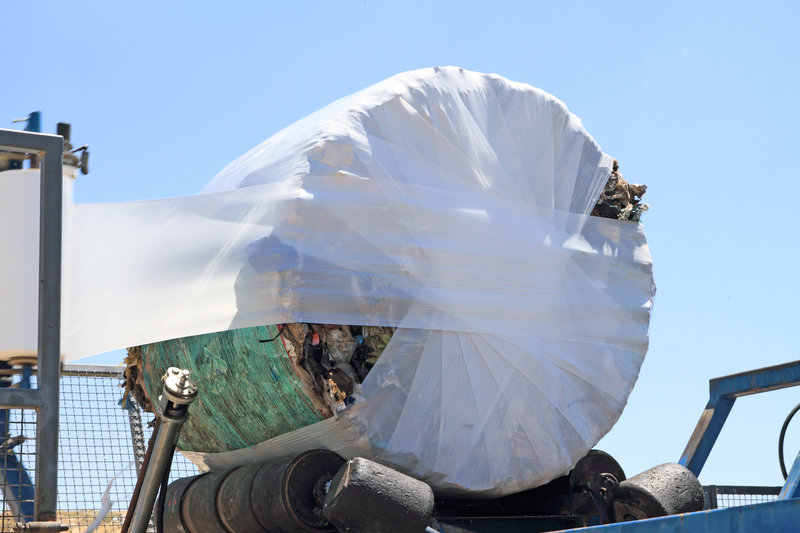In the modern hospitality industry, food waste management is becoming an increasingly critical concern. With the rapid rise in global awareness about environmental conservation and sustainability, restaurants are now compelled to find innovative solutions to manage and reduce food waste. Let's explore how establishments are revolutionizing their waste management practices and making a positive impact on the planet.
Understanding the Impact of Food Waste
Food waste not only affects a restaurant's bottom line but also has significant environmental consequences. According to the Food and Agriculture Organization (FAO), approximately one-third of all food produced globally is wasted. This waste contributes to greenhouse gas emissions and exacerbates food insecurity issues. Therefore, dealing effectively with food waste is not just economically wise but also socially responsible.

Key Strategies for Managing Food Waste in Restaurants
Here are some impactful strategies that restaurants are adopting to revolutionize food waste management:
1. Conducting Waste Audits
Before any changes can be made, restaurants need to understand the root of their waste generation. Conducting a comprehensive waste audit helps in determining what is being wasted and why. By categorizing and measuring waste quantities, restaurants can pinpoint problem areas and begin strategizing improvements.
2. Implementing Inventory Management Systems
Advanced inventory management systems are becoming a game-changer. These systems help track stock levels, expiration dates, and purchasing patterns to ensure that food is used efficiently. They allow for better forecasting and ensure that restaurants are purchasing an appropriate amount of ingredients, reducing the potential for spoilage.
3. Adopting Creative Menu Design
Menu design can significantly impact food waste. By designing menus that use ingredients with overlapping uses, restaurants can minimize waste. For example, a soup of the day could incorporate leftover vegetable trimmings. This not only reduces waste but also offers unique culinary experiences to customers.
4. Engaging Staff Training and Education
Educating staff on the importance of reducing food waste is crucial. Training programs can raise awareness about waste reduction techniques and encourage a culture of sustainability. From kitchen staff to waitstaff, every team member plays a role in effective food waste management.
5. Utilizing Technology for Waste Management
Modern technology offers numerous tools for managing food waste. Smart bins equipped with sensors can track the type and amount of waste being disposed of, providing valuable data for making informed decisions. Furthermore, apps and platforms can assist in efficiently redistributing excess food to charities or compost facilities.
6. Partnering with Food Recovery Programs
Many organizations focus on recovering and redistributing food to those in need. By partnering with these programs, restaurants can ensure that edible food doesn't go to waste. This not only supports community welfare but enhances the restaurant's reputation as a socially responsible business.
7. Composting and Recycling Initiatives
An essential part of a comprehensive food waste strategy is finding sustainable disposal methods. Composting transforms organic waste into valuable nutrients for soil, while recycling practices ensure non-organic waste is processed appropriately. Implementing these initiatives not only reduces waste but can also benefit restaurants through cost savings and brand esteem.
The Role of Innovative Technologies in Waste Management
Technological advancements have brought about a revolution in food waste management strategies. Here's a look at some cutting-edge technologies being used in the restaurant industry:
Smart Inventory Systems
- Use AI algorithms to predict stock requirements dynamically.
- Help prevent over-ordering and underutilization of resources.
IoT-enabled Waste Bins
- Monitor the type and volume of waste generated in real-time.
- Provide data analytics to optimize waste management processes.
Food Tracking Apps
- Assist in connecting surplus food to donation centers or compost facilities.
- Foster a circular economy by minimizing food landfill contributions.

Benefits of Effective Food Waste Management
Implementing comprehensive practices for managing food waste in restaurants yields multiple benefits:
- Cost Savings: Less waste means reduced disposal costs and better resource optimization, directly improving profit margins.
- Environmental Impact: Lower greenhouse gas emissions and reduced landfill usage contribute to a healthier planet.
- Enhanced Brand Image: Demonstrating a commitment to sustainability can enhance a restaurant's reputation and attract eco-conscious consumers.
- Community Engagement: Contributing surplus food to local charities supports those in need and builds positive community relationships.
Conclusion: The Path Forward
Revolutionizing food waste management in restaurants is not just a trend but a necessity in today's world. By adopting innovative strategies and leveraging advanced technologies, eateries can significantly reduce their environmental footprint while also saving costs. The move towards more sustainable practices not only meets consumer demands but also paves the way for a more ethical and responsible future.
As restaurants continue to refine their practices, the cumulative effect on both the industry and the environment will be overwhelmingly positive. By working together with all stakeholders including the staff, suppliers, and customers, the hospitality sector can lead the charge toward a more sustainable future.